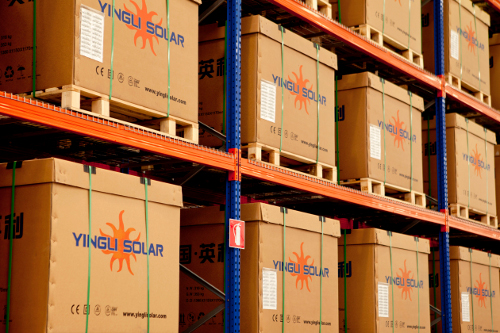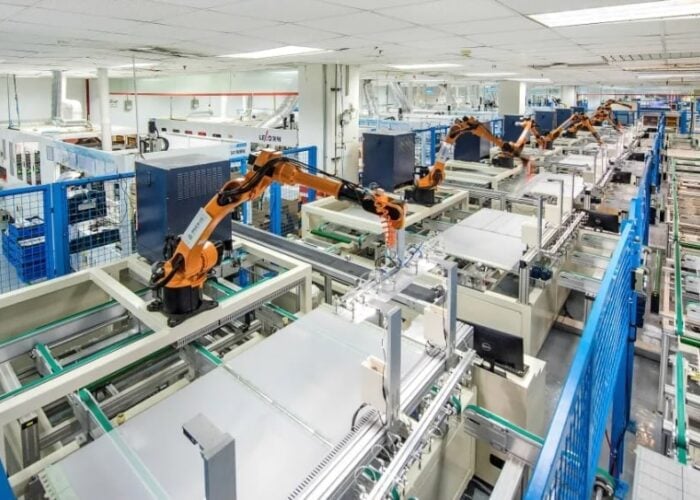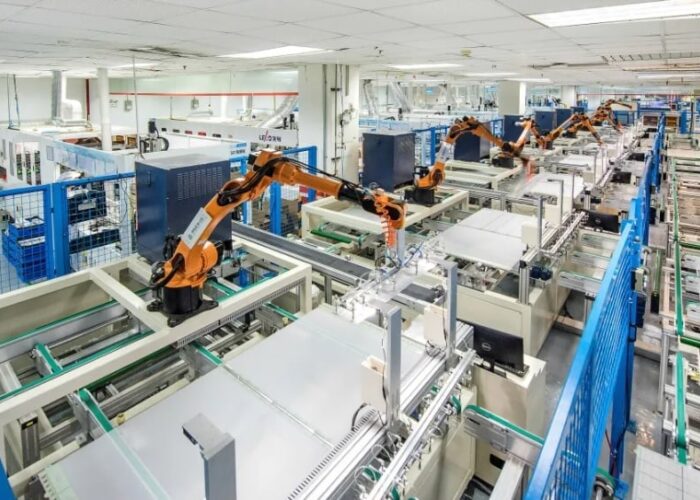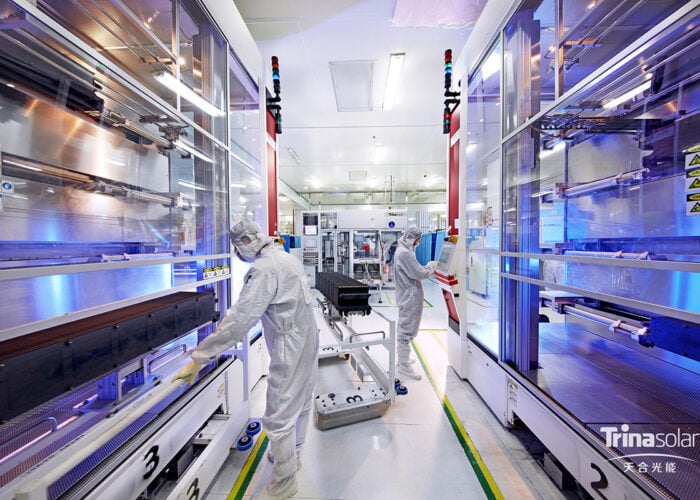Earlier this week, Trina Solar issued its Q3 results. The highlight was probably the fact that it shipped a record 1.7GW during the quarter but the potentially bigger story that the results could elicit concerns one of its industry peers.
Trina confirmed that it had agreed a settlement of US$45 million with Solyndra over a lawsuit filed back in 2012.
Unlock unlimited access for 12 whole months of distinctive global analysis
Photovoltaics International is now included.
- Regular insight and analysis of the industry’s biggest developments
- In-depth interviews with the industry’s leading figures
- Unlimited digital access to the PV Tech Power journal catalogue
- Unlimited digital access to the Photovoltaics International journal catalogue
- Access to more than 1,000 technical papers
- Discounts on Solar Media’s portfolio of events, in-person and virtual
Or continue reading this article for free
A successor company to the bankrupt US module maker Solyndra alleged that Chinese firms’ unfair trade practices had contributed to its demise. After three years of legal proceedings, Trina decided enough was enough.
“We have entered into a settlement with Solyndra to avoid a burdensome and protracted litigation,” said Trina CEO Jifan Gao this week. “The resolution to the litigation with Solyndra puts this matter behind us and allows us to focus our attention and resources on our business.”
You can almost hear the irritation and contempt: “Pesky lawsuit. Glad to get that out of my in-tray.”
The lawsuit also targeted Suntech (pre-restructuring) and Yingli.
This is where things get interesting. At the time of writing Yingli is scheduled to have its own settlement conference on 4 December 2015. A previous conference on 21 October 2015 failed to find a settlement agreement.
It’s important to stress that comparing Yingli’s settlement with Trina’s is a little dangerous. While the complaint against both companies is the same, inside the settlement negotiations there will by myriad arguments, mitigations and defences that feed into discussions of 'a number'.
The court document alleges “attempted monopolization, conspiracy, predatory pricing, tortious interference, and price fixing” by “an illegal cartel of Chinese solar panel manufacturers”. They are also accused of dumping. This is an accusation that the US Department of Commerce has since found Chinese manufacturers guilty of, resulting in the anti-dumping tariffs it has imposed and upheld.
But while Trina has swatted the case and moved on, Yingli is in a much weaker cash position. It declined to comment on the case to PV Tech so instead we have to look at its circumstances ourselves.
In April 2015 it sold off a plot of land for just short of US$100 million citing the need to raise cash to ensure it could meet looming debt repayments. It’s preliminary Q3 results showed lower than expected utilisation rates. Roth Capital’s Philip Shen noted that the company is looking to preserve cash ahead of the next round of debt repayments. In October it paid RMB643 million of a RMB1 billion repayment due on a 2010 bond. Spare cash to dismiss lawsuits would not appear to be widely available.
While there is no use speculating on the final outcome of next month’s settlement conference or the potential scale of any payout, it is worth noting that debt repayments may not be the only cloud hanging over Yingli.








